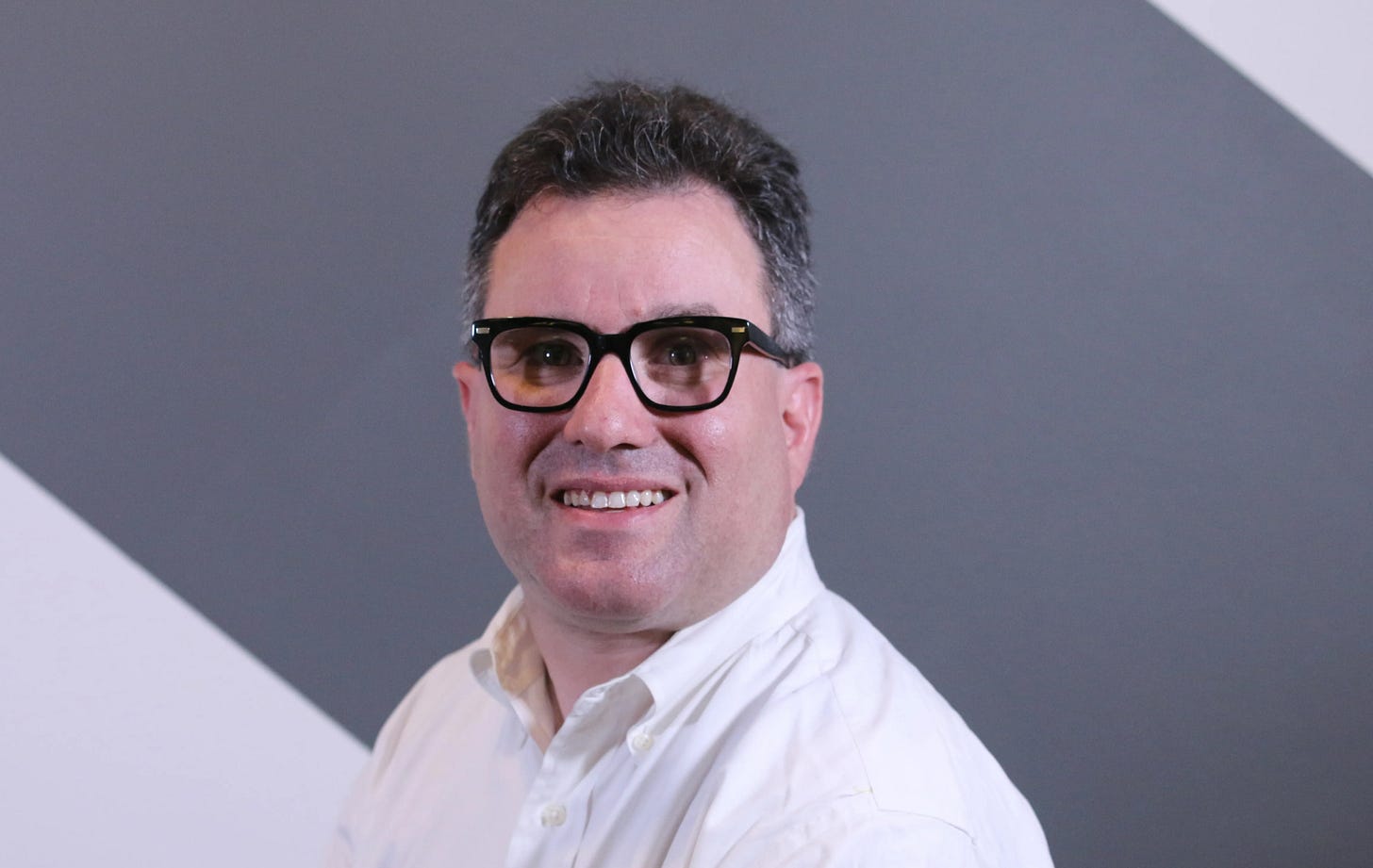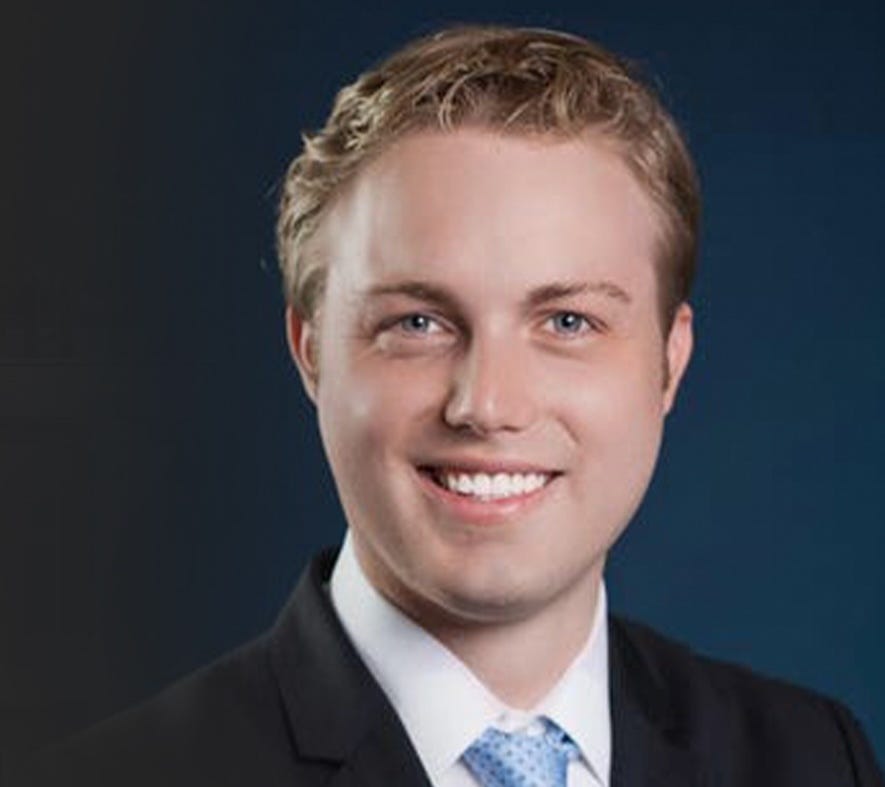Fresh prints
FreeCons embrace new ways to address America’s greatest challenges
There’s a reason FreeCons don’t call ourselves “traditional conservatives” or “Reagan conservatives” — even though we venerate both American tradition and the 40th president who did so much to honor and restore it during his administration.
While history has taught us crucial lessons, Freedom Conservatives spend most of our time looking forward, not backward. “To ensure that America's best days are ahead,” our Statement of Principles argues, “we must apply the timeless principles of liberty to the challenges of the 21st century.”
A shared commitment to securing America’s future explains why hundreds of policy analysts, former elected and appointed officials, journalists, litigators, educators, and other leaders have signed the FreeCon statement over the past two years.
We recognize that our country faces many difficult problems — from insufficient social mobility and family formation to ineffective schools and a high cost of living. Where we differ from our rivals on the Progressive Left and Populist Right is that we don’t believe concentrating power in Washington and using it to browbeat citizens, families, and communities into submission can solve these problems.
“Individual liberty is essential to the moral and physical strength of the nation,” we wrote. “Liberty is indivisible, and political freedom cannot long exist without economic freedom.”
Today we feature FreeCons who exhibit fresh thinking about America‘s biggest challenges — and offer solutions grounded in its founding principles of liberty, virtue, and self-government.
Sunlight and competition
Neil Chilson is a lawyer, computer scientist, and author of the book Getting Out of Control: Emergent Leadership in a Complex World. He’s also a FreeCon signatory
Currently the head of artificial-intelligence policy at the Abundance Institute, Chilson previously served as a senior research fellow at the Center for Growth and Opportunity and was chief technologist at the Federal Trade Commission.
A recent series of posts on his Substack Getting Out of Control explored the phenomenon of “woke AI” and why conservatives enjoy advantages in the emerging AI era.
“In social media, both sides play tug-of-war on the same rope: content moderation,” Chilson wrote. “Progressives pull for more takedowns; conservatives pull for fewer. The battle lines are fixed, the trenches are dug, and victories are measured in inches.”
“But AI is different. Here, conservatives hold a structural advantage that most haven't recognized: while progressives struggle to define what an ‘unbiased’ AI even means, the tools to stop deliberate AI manipulation are clear, constitutional, and ready to deploy.”
He recommended the following strategy:
First, demand transparency, not regulation. Push companies to publish system prompts and support industry standards for disclosure while opposing broad "anti-bias" mandates. Use market pressure, not government power.
Second, preserve competition. Fight regulations that favor incumbents. Support open-source AI development. Oppose licensing schemes and compute thresholds that would raise barriers to entry. Keep the field clear of a patchwork of state regulations and open for innovators.
Third, create accountability through measurement. Fund development of ideological-bias benchmarks and publicize results widely. Support third-party testing organizations that can make bias detection user-friendly and accessible to ordinary consumers.
“Woke AI isn’t fixed with rulebooks and regulators,” Chilson concluded. “It’s fixed with sunlight and competition.”
Reduce harms
Eli Lehrer is founder and president of the R Street Institute and a FreeCon signatory.
A former vice president at the Heartland Institute, Lehrer previously worked as a speechwriter to then-Senate Majority Leader Bill Frist, a project manager for the Unisys Corp, senior editor of The American Enterprise magazine, and a fellow at the Heritage Foundation. He began his career as a reporter for The Washington Times.
In a recent article for The Dispatch, Lehrer argued that America’s relatively poor showing in international health statistics primarily reflects longstanding problems with obesity, substance abuse, highway safety, and gun violence.
“Americans can have great doctors, access to every high-tech treatment, great health insurance coverage, and plenty of money and still get sick and die younger,” he wrote.
“Particularly if America is to take its creed of freedom seriously, however, passing laws which limit behaviors that many see as personal choices poses huge challenges,” he wrote. “The best option, then, is harm reduction.”
Lehrer recommended broader access to GLP-1 medications to combat obesity, for example, as well as expediting approval of non-addictive painkillers as alternatives to opioids and giving tobacco companies more latitude to market smokeless nicotine products as alternatives to cigarettes.
Regulatory agencies should also expedite the approval of autonomous vehicles to operate on America’s highways, because they hold the promise of significantly reducing crashes and deaths.
“Critics might worry about edge-case failures, but the math is clear: Delaying the rollout of good-enough autonomous vehicles means accepting tens of thousands of deaths,” he wrote.
“The law doesn’t require perfection from human drivers. Regulators shouldn’t demand it from software that’s already better.”
In a recent City Journal column, FreeCon signatory Jordan McGillis explained how autonomous trucking alone would deliver tremendous benefits to companies, customers, other motorists, and even truckers themselves.
“For an industry like freight, AI is complementary to human work, not a substitute for it,” McGillis wrote. “AI enables what economists call the unbundling of tasks.”
Autonomous driving “can take over the long and monotonous stretches of a route. But a human is still essential — and will still be for the foreseeable future — off the highway, where the irregularities of tight city streets, loading docks, and warehousing demand a flexible mind.”
“In practice, this will mean men who previously would have been isolated on the highway for hours on end are instead able to move freight closer to home.”
Capital idea
Jon Hartley is a policy fellow at Stanford University’s Hoover Institution and a FreeCon signatory.
Hartley also serves as a fellow at the UT-Austin Civitas Institute, the Foundation for Research on Equal Opportunity, and the Macdonald-Laurier Institute. He hosts the Capitalism and Freedom in the 21st Century Podcast and was the founding chair of the Economic Club of Miami.
In a piece for National Review, Hartley observed that the tax bill the U.S. House recently sent to the Senate for consideration allows companies to fully expense their capital expenditures — but does so only until 2029.
“Firms making capital investment decisions today must factor in the scheduled expiration of these provisions,” wrote Hartley and his author Joshua Rauh, a Hoover senior fellow.
“That might lead them to accelerate investments in suboptimal ways or delay or forgo potentially beneficial projects. A permanent policy would allow businesses to make investment decisions based on a stable tax environment.”
Expanding and making permanent the expensing provision, they argued, would increase the marginal return on corporate investment and increase the cash available for other investments.
“Republicans want economic growth to be higher. Permanent full expensing for both equipment and buildings is one of the best things the tax bill can do toward that goal.”
Another FreeCon signatory, David McIntosh of the Club for Growth, made a similar argument in a recent Wall Street Journal piece co-written with investor Jeff Yass.
“Long-term investment and growth is driven by certainty. Republicans must unite behind full and permanent expensing, which would also help mitigate the country’s multi-trillion-dollar annual budget deficits.”
In the mix
• In the Washington Examiner, Dan Mitchell urged President Trump not to implement one of the Biden administration’s worst ideas: loosening the federal leash that keeps the taxpayer-funded Fannie Mae and Freddie Mac in check.
“The last time Fannie and Freddie had unfettered ability to speculate on our dime, those crony enterprises helped bring down the entire financial system,” argued Mitchell, president of the Center for Freedom & Prosperity.
“If they are allowed to do the same today, it could lead to an even worse recession than the one we experienced earlier this century. Why? Because, today, they subsidize 60% of new mortgages, versus just 45% before the 2008 recession began. That’s a ton more money to gamble away at the taxpayers’ expense.”
• FreeCon signatory Merrill Matthews recently talked with Health Care News about state legislatures enacting bills to end the fluoridation of drinking water.
A longtime policy analyst and columnist for The Hill, Matthews told the paper that while some people get fluoride from toothpaste or direct treatments, water fluoridation provides broad, consistent protection.
“Fluoride toxicity is highly unlikely at recommended levels,” he said. “Nearly all studies that found problems were examining excessive levels far above what’s used in public systems.”
The right policy is for cities to make water fluoridation levels publicly available online, including how those levels compare to CDC recommendations, but not to enact statewide bans.
“Voters and their elected representatives should decide. The closer the decision is to the people, the better, and if problems arise, communities can always reverse course.”



